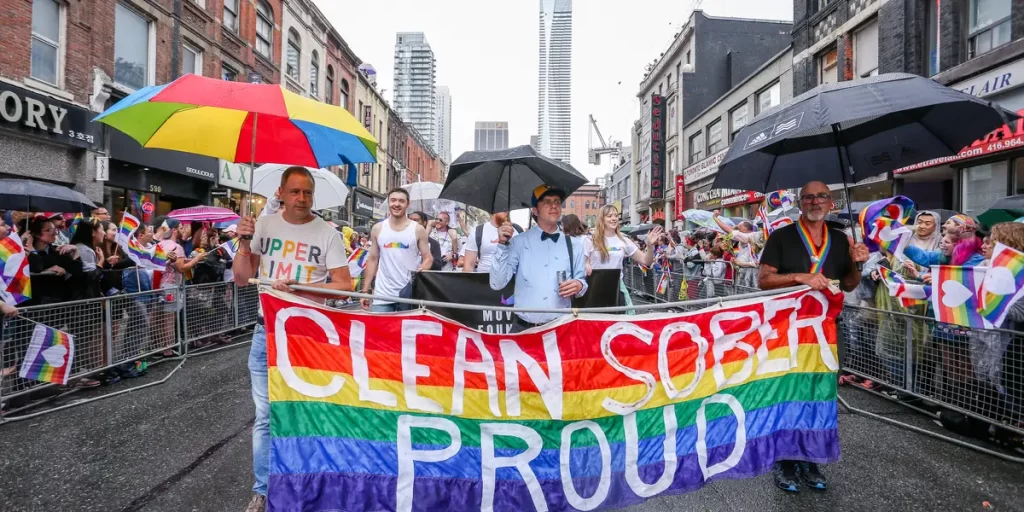Going through detoxification is crucial for overcoming addictions as it helps remove substances from the body and deal with withdrawal symptoms effectively, especially for LGBTQ individuals who have specific needs and circumstances that require a tailored approach to honoring their identities and journeys.

Exploring the World of LGBTQ Experiences
To offer detox services to people in the LGBTQ + community, it is important to grasp their distinct experiences. Those in this community might encounter increased instances of substance abuse because of reasons such as minority stress, discrimination, social isolation, and internalized feelings of homophobia or transphobia. For instance, a lot of LGBTQ+ detox in Los Angeles specifically focuses on addressing these challenges by providing tailored care and support to help individuals heal in an inclusive environment.
The Importance of Having Accessible Treatment Facilities
Treatment centers should strive to create environments that are welcoming and supportive for LGBTQ individuals during their detox process by considering factors like using pronouns and providing gender-neutral facilities and respectful communication that does not assume sexual orientation or gender identity while also ensuring staff are knowledgeable about LGBTQ identities.
The Significance of Taking a Culturally Respectful Approach
When creating a detox program tailored for individuals in the LGBTQ+ community, it is important to be culturally aware and sensitive to their needs and experiences. Recognizing and respecting differences is essential in providing effective care that truly considers aspects related to sexual orientation and gender identity. Research indicates that addiction treatment programs should be culturally competent within the LGBTQ+ community by incorporating training into detox facilities to yield improved results.
Staff Training on Detoxification
It is crucial to provide thorough training for employees to ensure a welcoming and secure atmosphere for LGBTQ+ identifying clients. Hiring experts who have received LGBTQ+-focused training aids in building trust and empathy throughout the detoxification process. Additionally, the training ought to emphasize the practice of trauma-informed care to tackle any issues that could be fueling substance misuse.
Creating Connections for Assistance
Support systems are crucial in helping someone get better after facing challenges in life. The recovery journey is an example of how important it can be to join a group where people understand and share your struggles and triumphs. Being part of therapy sessions created for LGBTQ individuals at detox centers can provide comfort and reduce the sense of loneliness.
Rehabilitation Services for Continued Support
Following the detox process successfully is essential for long-term recovery success in the community. Individuals should have ongoing access to therapy sessions, support groups, and mental health services that cater to their specific needs. This focus on sustained support and accessible aftercare choices increases the chances of individuals staying sober effectively.
Meeting the Requirements for Holistic Mental Health Support
Apart from issues related to substance abuse in the community, members may also struggle with mental health issues like stress and depression, as well as disorders linked to traumatic experiences. It’s important for detox centers to include health assistance as a key component of their programs by offering therapy services that deal with emotional and psychological challenges alongside detoxification procedures. Treating addiction and concurrent mental health issues in a holistic approach enhances the likelihood of successful healing and overall well-being.
Establishing Secure Environments
Creating environments within detox facilities is crucial for LGBTQ+ individuals’ well-being. Detox centers need to establish policies that explicitly forbid discrimination related to sexual orientation or gender identity. All employees should receive training to ensure they create an inclusive atmosphere devoid of prejudice or preconceptions. Safeguarding confidentiality and honoring clients’ privacy is vital for fostering trust with those seeking detox services.
Discussing Ways to Avoid Relapse
Ensuring individuals stay on track after detox is vital to their recovery journey’s success. People within the LGBTQ community may encounter hurdles that heighten their risk of relapse, like feeling disconnected and having limited support networks due to discrimination or disapproval from loved ones and peers. To best support LGBTQ individuals, detox care facilities should implement customized relapse prevention techniques. These may involve teaching coping mechanisms, fostering positive connections and support circles, and offering continued assistance beyond the detox phase.
Exploring Gender Identity Support
Transgender individuals in the community often find that their well-being is greatly influenced by gender affirmation practices. Detox centers should support individuals in exploring their gender identity during the recovery journey by using pronouns and respecting chosen names. They should also consider providing access to hormone therapy if requested and offering referrals for gender-affirming healthcare services.
Conclusion
To sum up, supporting members of the LGBTQ+ community through detox services effectively and compassionately requires an approach that embraces their identities and experiences fully. Implementing a program that’s culturally sensitive and staffed by trained professionals who value each individual’s uniqueness and well-being ensures a supportive atmosphere conducive to successful recovery journeys towards brighter futures.



